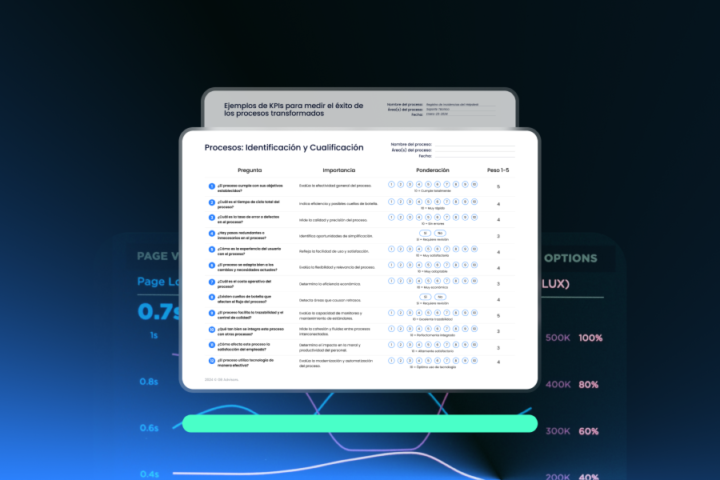 The info-age has prompted organizations to extend their activities and services into the digital world. One of the best ways they have found to do this is through web applications. However, despite its advantages; this type of tools has become one of the favorite attack vectors of cybercriminals. For that reason; web application security has become one of the topics of greatest interest to security professionals and businesses around the world.
The info-age has prompted organizations to extend their activities and services into the digital world. One of the best ways they have found to do this is through web applications. However, despite its advantages; this type of tools has become one of the favorite attack vectors of cybercriminals. For that reason; web application security has become one of the topics of greatest interest to security professionals and businesses around the world.
If you are looking to effectively protect the sensitive data of your customers and your organization in cyberspace; be sure to read these 7 best practices for web application security.
Web applications: Essential but vulnerable

A web application is nothing more than software accessible via a web browser. Although like traditional software, it is also hosted on a server; users do not need to install it on their computer to use it. It is enough to access your pre-determined browser to access through an Internet network or intranet, to the functions the application offers.
Today, the competitiveness of companies is intimately related to their ability to maintain their presence on the web. That is why many decide to make use of web applications to interact better with their customers. Whether through online sales sites, blogs or RIA (Rich Internet Application) applications. Web applications are particularly advantageous for their simplicity, lightness, and availability, which makes them permanently accessible from any device with access to a browser and Internet connection.
The other side of the coin is that, since these applications are available from anywhere and by anyone, they are particularly vulnerable to attacks by cybercriminals.
Some common exploits of these criminals are the following:
- Injection failure: it occurs when unreliable data is sent to an interpreter as part of a command or query.
- Cross-Site Scripting (XSS) vulnerabilities: It occurs when an application takes unreliable data and sends it to a web browser without validation.
- Poor security configuration: it occurs when application servers, web servers, database servers, and the platform do not have a secure configuration properly established and implemented.
- Transport Layer Protection Defect: It occurs when applications cannot encrypt and protect the confidentiality and integrity of sensitive network traffic.
What are the consequences of attacks on the Web application security for enterprises?
There are several negative consequences that this type of attacks can bring to companies, among them we have:
- Significant financial losses.
- Theft of sensitive data.
- A negative perception of the brand
- Distrust on the part of customers.
Luckily there are a series of measures that companies can take to reduce the scope of any cyber attack that threatens the web application security. Here are some of them.
5 Best practices to guarantee the security of web applications
#1 Perform a risk assessment
 The identification of security needs is vital when creating effective protocols. At this stage, you must take into account and evaluate that those factors most likely to impact the security of web applications. For example; the level of sensitivity of the data handled in the application, accessibility; traceability, legal obligations, type of users that will have access, etc. After the identification process, it is advisable to prioritize the factors of greatest impact in order to proceed to establish the most appropriate strategies.
The identification of security needs is vital when creating effective protocols. At this stage, you must take into account and evaluate that those factors most likely to impact the security of web applications. For example; the level of sensitivity of the data handled in the application, accessibility; traceability, legal obligations, type of users that will have access, etc. After the identification process, it is advisable to prioritize the factors of greatest impact in order to proceed to establish the most appropriate strategies.
#2 Establish strategies against harmful user input
Assuming that user entries are secure is a mistake as it prevents the necessary precautions from being taken, and in this way, malicious users can easily send harmful information to your application. To protect the app from harmful entries, apply the following rules.
- Never play unfiltered user entries. Before displaying unreliable information, encode HTML to convert the potentially harmful script into display strings.
- Never store unfiltered user entries in a database.
- If you want to accept HTML from a user, filter it manually. In its filter, it explicitly defines the elements to be accepted.
- If possible, do not store confidential information in a location accessible from the browser; such as a hidden field or a cookie.
#3 Protect sensitive data
Implementing SSL encryption is a vital strategy when protecting applications that handle sensitive data. Another way to protect information is to configure your web server to automatically redirect all HTTP requests to encrypted pages. This will prevent passwords or session IDs from being transmitted clearly.
#4 Develop a secure password reset system

Normally password reset systems are based on personal questions; if this is the case with your web application, it is best to set up a system in which the questions are difficult to guess. When creating this system, make sure that the reset option does not reveal whether an account is valid or not, in order to avoid the enumeration of usernames.
#5 Use a web application security tool
Manual processes tend to be long and tedious, and there are security breaches that can escape human eyes. That is why we recommend that you automate the detection of vulnerabilities of your web applications through a tool.
There are many solutions capable of performing this task, but if what you are looking for is a comprehensive solution that allows you to have total visibility over the assets that make up the infrastructure of your company, we recommend that you acquire the powerful Tenable.io. A security scanner capable of giving you a complete map of your web applications, and protect not only this type of tools but also other resources such as containers and assets in the cloud.
If you want more information about Tenable.io or any other security solution and ITSM, do not hesitate to contact us. At GB Advisors, we are committed to providing you with the most effective solutions for your business and a complete, quality service.



